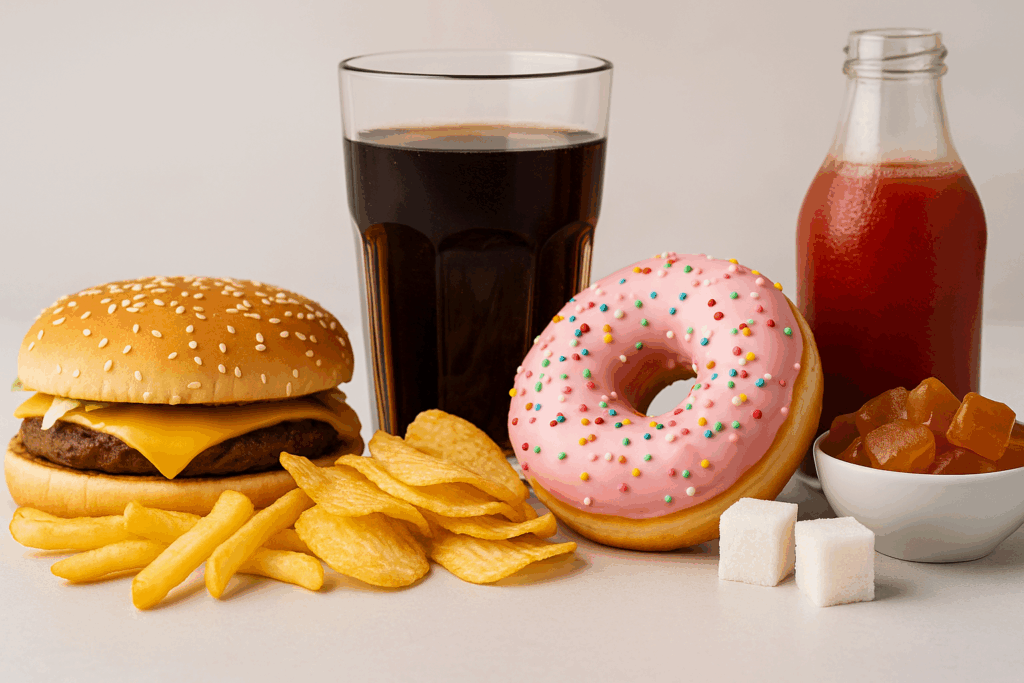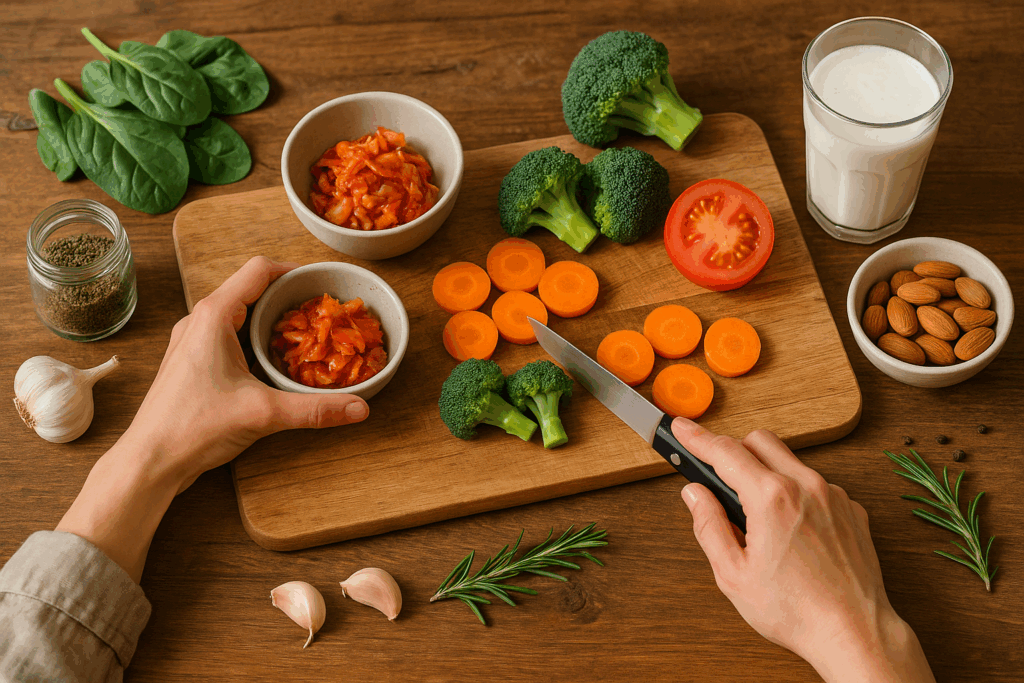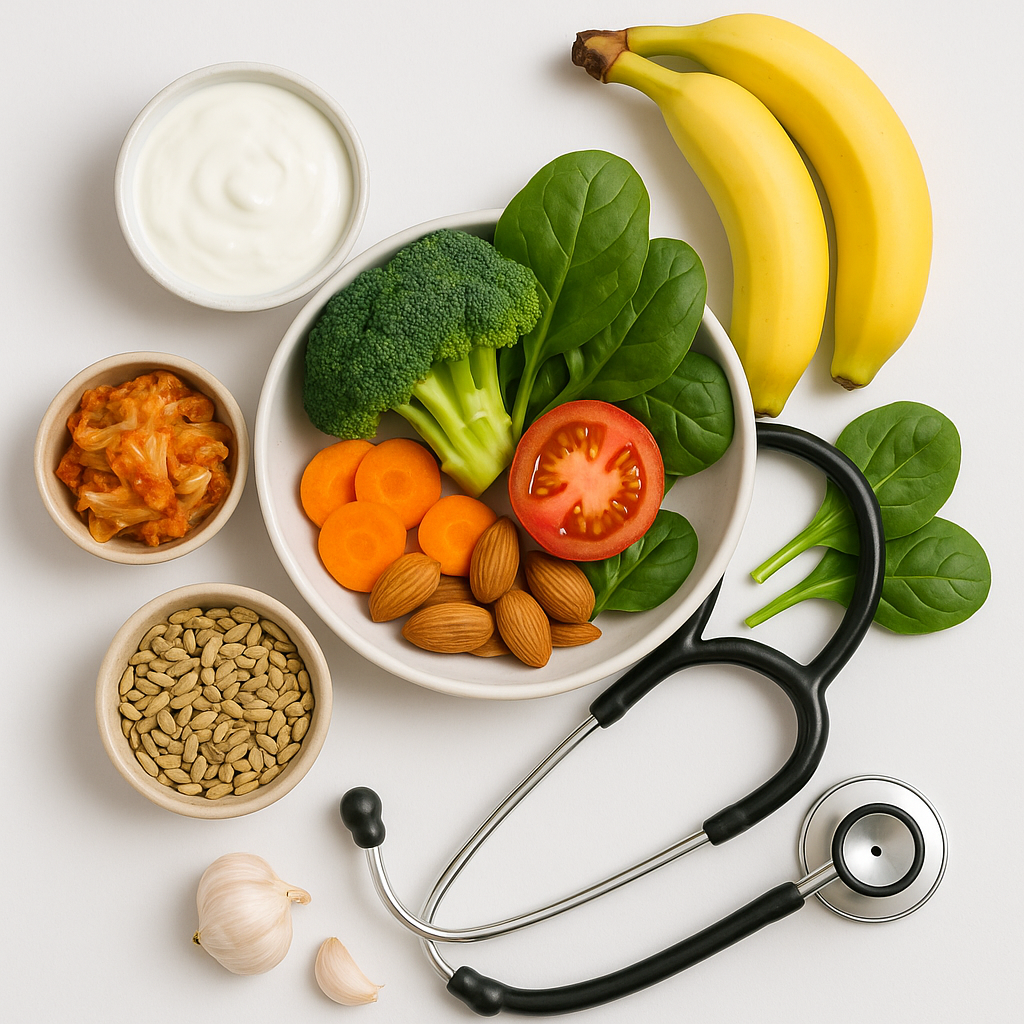

Taking care of your gut isn’t just about avoiding stomach aches — it’s about supporting your whole body. A gut health diet plan can improve digestion, strengthen your immune system, and even lift your mood. Did you know your gut health plays a huge role in how you feel every day?
From digestion to immunity — and even your mood — your gut has a major influence on your overall wellness. This gut health diet plan is designed to help you feel lighter, healthier, and more energized every day.
This guide will show you exactly what to eat (and what to avoid) to build a healthier gut, boost your immune system, and feel your best. Let’s dive into the foods and habits that can transform your gut health naturally.
Understanding Gut Health
Your gut isn’t just where food gets digested — it’s home to trillions of bacteria known as the gut microbiome. These tiny organisms help break down food, support your immune system, and even impact brain function. Learn more about gut health and why it matters in this Cleveland Clinic guide.
Signs your gut might be out of balance include:
-
Bloating
-
Gas
-
Constipation or diarrhea
-
Frequent colds
-
Low energy or brain fog
-
Skin problems like eczema
When your gut is healthy, you enjoy:
-
Easier digestion
-
Stronger immunity
-
Better energy levels
-
Clearer skin
-
A happier mood
Taking care of your gut health is one of the smartest things you can do for your body.
Foods That Promote Gut Health
If you want to heal and nourish your gut, your plate is the perfect place to start. A well-balanced gut health diet plan includes a mix of probiotics, prebiotics, and fiber-rich ingredients.
Probiotic-Rich Foods
Probiotics are live bacteria that add healthy organisms to your gut. Include these regularly:
-
Yogurt (look for “live and active cultures”)
-
Kefir (a fermented milk drink)
-
Sauerkraut (fermented cabbage)
-
Kimchi (spicy Korean fermented vegetables)
Prebiotic Foods
Prebiotics are fibers that feed your good gut bacteria. Some of the best choices:
-
Garlic
-
Onions
-
Bananas
-
Asparagus
-
Leeks
High-Fiber Foods
Fiber keeps your digestion smooth and supports gut bacteria:
-
Whole grains like oats, quinoa, and barley
-
Legumes such as lentils and chickpeas
-
Leafy greens like spinach, kale, and arugula
Fermented Foods
Fermentation naturally boosts probiotics:
-
Miso (a fermented soybean paste)
-
Tempeh (fermented soy product)
-
Kombucha (fermented tea)
Hydration
Never underestimate water!
Drinking enough water and sipping herbal teas like peppermint or ginger tea help your digestive system work its best.
Foods to Avoid for Gut Health
Just as some foods heal your gut, others can harm it. Avoiding these foods is key to making your gut health diet plan more effective and sustainable long-term.
Processed Foods
Highly processed snacks and meals are often loaded with preservatives and lack gut-friendly fiber.
Excessive Sugar
Too much sugar feeds bad bacteria, leading to gut imbalances and inflammation.
Artificial Sweeteners
Some sweeteners (like sucralose and aspartame) may disturb the balance of your gut microbiome.
High-Fat and Fried Foods
They slow digestion, increase gut inflammation, and can cause discomfort.
Alcohol and Caffeine
In small amounts, they might be okay, but too much can irritate your gut lining and disrupt digestion.
Sample 7-Day Gut Health Meal Plan
Here’s a simple gut-healing meal plan to kickstart your journey:
This 7-day gut health diet plan provides delicious, easy meals that nourish your digestive system.
Day 1
-
Breakfast: Greek yogurt topped with berries and chia seeds
-
Lunch: Quinoa salad with chickpeas, cucumber, and olive oil
-
Dinner: Grilled salmon, steamed broccoli, and brown rice
Day 2
-
Breakfast: Oatmeal with banana slices and flaxseeds
-
Lunch: Lentil soup with whole-grain bread
-
Dinner: Stir-fried tofu with colorful veggies and soba noodles
Day 3
-
Breakfast: Smoothie with kefir, spinach, berries, and almond butter
-
Lunch: Turkey and avocado wrap with whole-grain tortilla
-
Dinner: Baked cod with asparagus and sweet potato
Day 4
-
Breakfast: Scrambled eggs with spinach and mushrooms
-
Lunch: Roasted vegetable quinoa bowl
-
Dinner: Chicken stir-fry with broccoli and brown rice
Day 5
-
Breakfast: Chia pudding with coconut milk and berries
-
Lunch: Mediterranean salad with feta, olives, and tomatoes
-
Dinner: Grilled shrimp with quinoa and steamed green beans
Day 6
-
Breakfast: Almond butter on whole-grain toast with banana
-
Lunch: Chickpea and vegetable curry with brown rice
-
Dinner: Beef and vegetable kabobs with couscous
Day 7
-
Breakfast: Kefir smoothie with oats, banana, and cinnamon
-
Lunch: Sweet potato and black bean salad
-
Dinner: Baked chicken breast with roasted Brussels sprouts and wild rice
Lifestyle Tips for Maintaining Gut Health
Building a healthy gut goes beyond just food.
Adopt these habits for even better results. To learn how intermittent fasting supports gut repair and metabolism, check out our post on Intermittent Fasting and Its Effects on Your Body.
Regular Exercise
Movement helps your digestive system stay active and healthy.
Stress Management
Chronic stress disrupts gut bacteria. Try meditation, yoga, journaling, or deep breathing exercises.
Adequate Sleep
During deep sleep, your gut repairs itself. Aim for 7–9 hours per night.
Mindful Eating
Slow down. Chew each bite thoroughly. Pay attention to your hunger and fullness signals.
Regular Meal Times
Eating meals at consistent times helps regulate your digestive rhythm.
Conclusion
Sticking to a gut health diet plan may feel challenging at first, but small steps lead to big results. A healthy gut is the foundation for a healthier, happier you.
By choosing gut-friendly foods, avoiding gut-damaging ones, and adopting a supportive lifestyle, you can boost your digestion, strengthen your immunity, and improve your overall well-being.
Start small — maybe with the 7-day meal plan — and pay attention to how your body responds.
Your gut will thank you!
